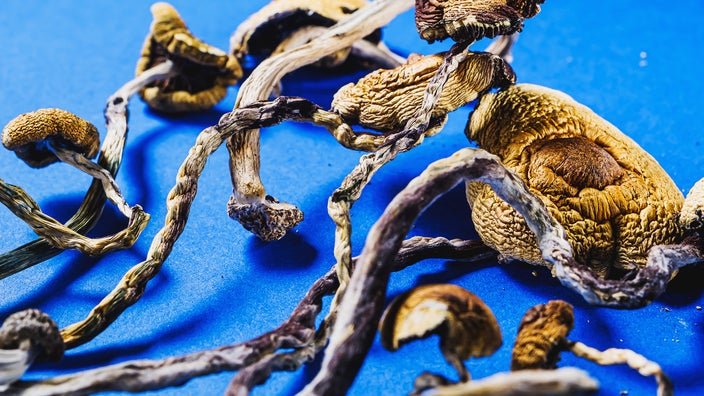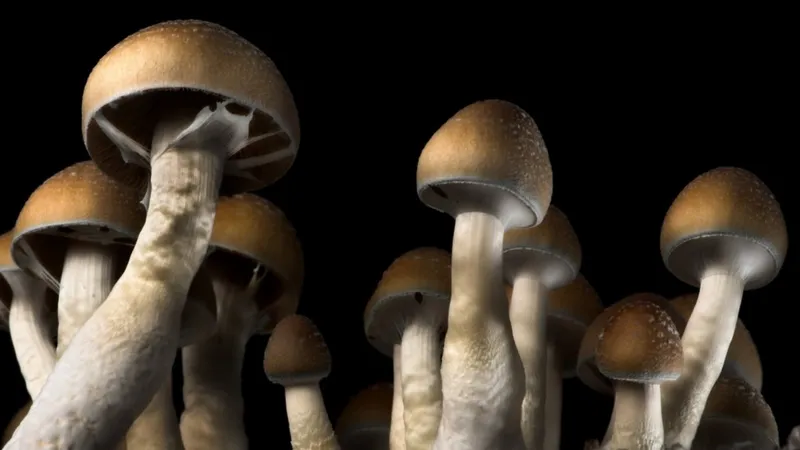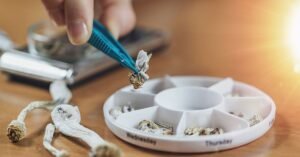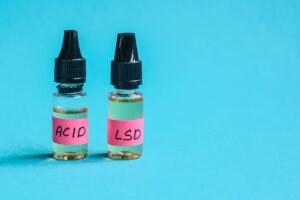psilocybin mushrooms for anxiety
Can Psilocybin Mushrooms Help With Anxiety?
Psilocybin mushrooms are gaining attention for their possible role in treating anxiety. Researchers in the United States and Europe are testing psilocybin in clinical trials. Early results show reductions in both depression and anxiety symptoms.
Psilocybin remains a controlled substance in most countries, but the science around it is advancing quickly. This post explains what psilocybin is, how it affects the brain, its potential role in treating anxiety, and the risks you should consider before use.
What Is Psilocybin?
Psilocybin is a naturally occurring psychedelic compound found in mushrooms from the genus Psilocybe. These mushrooms have been used for centuries in Mesoamerican spiritual and healing practices.
Common forms of consumption include:
Fresh or dried mushrooms
Mushroom tea
Capsules or tablets
Edibles such as chocolates
You can find psilocybin products in different formats online. For a wide selection of mushrooms and edibles, see Psychedelic2’s mushroom shop.


How Psilocybin Affects the Brain
Psilocybin is converted in the body to psilocin. Psilocin interacts with serotonin 2A receptors, which regulate mood, perception, and anxiety.
Key brain effects include:
Increased connectivity across brain regions
Reduced activity in the default mode network (DMN), linked to rumination and negative thought loops
Altered self-perception, sometimes called ego dissolution
Functional MRI studies show that psilocybin reduces rigid thought patterns. This flexibility may help people with anxiety process fear and trauma more effectively.
Can Psilocybin Mushrooms Treat Anxiety?
Indirect Evidence from Depression Studies
Most clinical research has focused on depression. Anxiety symptoms often improve as a secondary effect. For example:
In trials at Johns Hopkins and Imperial College London, participants with depression reported lower anxiety scores after treatment.
Relief lasted for weeks to months after one or two psilocybin sessions.
Direct Studies on Psilocybin and Anxiety
Several smaller studies tested psilocybin specifically for anxiety:
A trial at New York University and Johns Hopkins in patients with life-threatening cancer showed significant and lasting reductions in anxiety and depression. Results persisted for six months or longer (source).
A 2016 study in The Lancet Psychiatry on treatment-resistant depression also found reductions in both depression and anxiety symptoms.
These findings suggest psilocybin may directly relieve anxiety, not only as a side effect of depression treatment.
Risks of Using Psilocybin for Anxiety
Psychological Risks
Psilocybin can produce powerful emotional states. Without proper support, these experiences can trigger:
Panic attacks
Paranoia or confusion
Distressing “bad trips”
Rare cases of psychosis or suicidal thoughts
Supervised therapy sessions significantly reduce these risks. Unsupervised recreational use increases them.
Physical Risks
Most physical effects are short-term but include:
Elevated heart rate and blood pressure
Nausea or vomiting
Temporary confusion or dizziness
People with heart conditions or psychiatric disorders such as schizophrenia should avoid psilocybin without medical supervision.
Is Psilocybin Addictive?
Psilocybin has a low risk of addiction compared to opioids, stimulants, or alcohol. Tolerance develops quickly, making frequent use less reinforcing.
Researchers are testing psilocybin as a treatment for substance use disorders. Studies show benefits in alcohol and tobacco dependence.
That said, psychological dependence can occur if people rely on mushrooms as a repeated escape from stress. Responsible and guided use is essential.
Should You Consider Psilocybin for Anxiety?
Psilocybin shows promise for reducing anxiety, especially when combined with psychotherapy in a clinical setting. Current evidence indicates that one or two guided sessions can provide relief lasting several months.
Before considering psilocybin:
Consult a licensed mental health professional
Explore legal clinical trials in your country
Avoid unsupervised high-dose use
Consider structured retreat programs if available
For those researching psilocybin products, Psychedelic2 offers information and access to psilocybin mushrooms and related products.
Key Takeaways
Psilocybin interacts with serotonin receptors and alters brain connectivity.
Clinical trials show reductions in both depression and anxiety symptoms.
Risks include panic attacks, paranoia, and physical side effects.
Psilocybin is not addictive but should only be used responsibly.
The most promising results occur in supervised therapeutic settings




Sprunki Incredibox is a true evolution of musical creativity-building on Incredibox’s foundation while adding fresh beats and visual flair that bring your compositions to life. A must-try for any music lover! Sprunki Incredibox
8gbet1’s where it’s at! Site’s easy to get around on. I would invite to try 8gbet1! Check it out